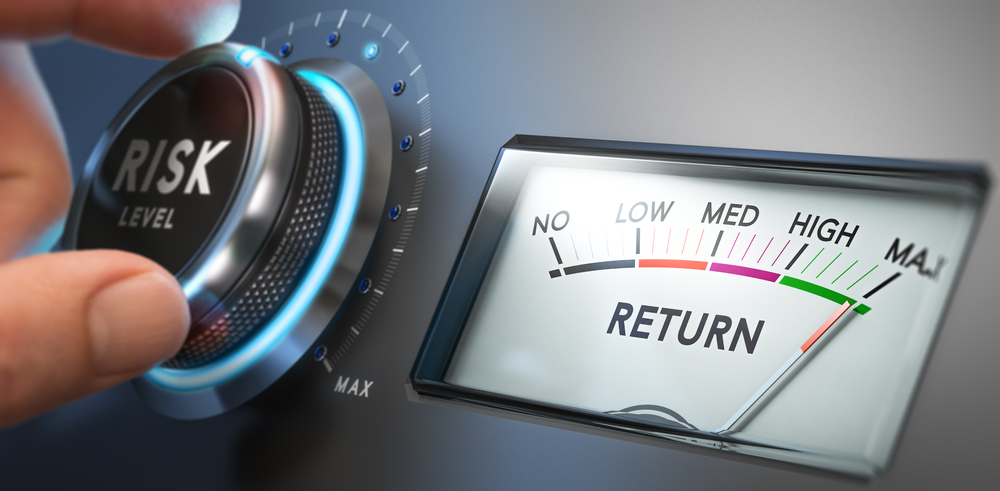The last few years of the pandemic and post-pandemic have left many people looking towards trading as a viable source of additional income, or even as their main source of income. However, while more people desire financial stability and independence is always a good thing, it’s all too common to see aspiring traders jump in without any knowledge and flame out as soon as they’re hit with that one big loss.
If this sounds familiar, don’t worry! You aren’t the first person to take a big trading loss. All the good traders have done so at some point. What’s important is the desire to do better and rebound back into success, because there are ways to get back in the trading game and succeed at it. But to do it takes discipline and a proper plan of action. This is why I have 6 basic tips when it comes to being a successful trader this year!
1) Manage Your Expectations
Trading is often advertised by some brokers as a get-rich-quick scheme, and let me tell you, this is the easiest way to know which brokers or financial gurus you need to avoid! Trading can pull in some big bucks, but to assume that you’ll be consistently taking big wins is one of the fastest ways to lose money in trading.
You need to temper your expectations and avoid relentlessly chasing profits, because the more you expect out of trading, the more you’re going to lose. This brings me to my next point…
2) Control Your Emotions
Emotions are a beautiful thing. Having emotions and feeling the emotions of others is something that makes us human and, by extension, makes life more fulfilling and colourful. However, having them when you’re trading is often a fatal mistake.
When you’re trading, you must be in control of your emotions. This means properly managing stress and having a proper mindset to stick to strategies and avoid overreacting. And this goes for both negative feelings and positive feelings. Getting hyped over a series of wins can kill all your earnings if you don’t show any prudence; and in the same way, trying to trade your way out of a loss can be the best way to rack up even more losses that you can’t dig yourself out of anymore.
So, keep your head clear and your mind focused, don’t take losses too personally, and make sure you’re always sticking to your plan.
3) Know Your Risk Tolerance
Risk tolerance is a concept we often hear about when it comes to trading, but few people truly understand what it means. Some people think it’s synonymous with being able to manage your money, but it’s decidedly different. Where money management deals with surviving losses (e.g., having an emergency fund, properly diversifying assets), risk management deals more with knowing how big of a loss you’re willing to take; whether that’s 0.5% or 5%.

Risk tolerance is ultimately a personal thing to decide. It’s completely okay to have a lower risk tolerance than others, or a higher risk tolerance than others, but what’s important is that you choose a level of risk you’re comfortable with. Comfort with your level of risk tolerance means that you’ll be less likely to bail in the bad times and keep up the consistency necessary for being a successful trader.
To determine your risk tolerance, try placing a random trade and seeing if you can leave it alone without worrying about it. If you can’t, then you should decrease your risk tolerance, but if you can, see how much you can risk without worrying until you find the percentage that’s right for you.
4) Choose Your Trading Strategy
Risk management, of course, is only one part of an overall trading strategy; and to be a successful trader, you must have one. If you just go with the flow and don’t have any plan, your earnings will likewise go nowhere.
There isn’t a right or wrong strategy, necessarily, but you do need to know what your strategy is and do a sizable amount of market research as to what the signals you need to follow are. Your strategy needs to be something that follows your level of risk management and involves the proper tools to help you execute it.
5) Do Not Overtrade
Overtrading is another symptom of getting caught in your emotions when trading, and it’s arguably one of the most dangerous because it puts your capital at risk for no good reason.
Overtrading happens when a trader either makes trades too rapidly or too early, or if they make too many trades in one go. This often happens when people start seeing new opportunities everywhere, thereby counting money that they don’t have yet.
Now, of course, it’s exciting to see new opportunities and think that every opening you see will be a goldmine in the future. But in truth, it’s showing restraint and discipline that will help you become a successful and consistent trader, even if it means missing some opportunities. So, be patient, set boundaries, and never overtrade.
6) Keep Up with The Markets
Finally, the best way to be a successful trader is to spend a bit of time studying the market and its trends. You can’t just hop into trading without direction and understanding market trends on the map to get you to shore.
This doesn’t just mean understanding how to read a chart, but it also means being up to date with the external factors that affect the market. It might not seem directly related to trading, but having a decent understanding of current events, and the political and social climate of the world is vital to trading properly. The market is affected by everything in its peripheries, which is why you need to keep up with all these external trends if you want to succeed in trading.
To your success,
Mario
[Visit www.mariosingh.com now to enjoy a FREE e-book of my latest “37 Essential Principles for Massive Success” when you subscribe!]





